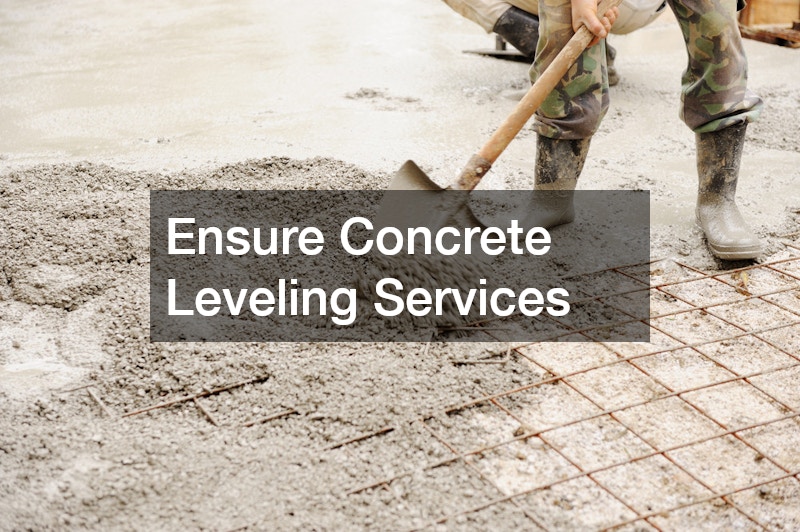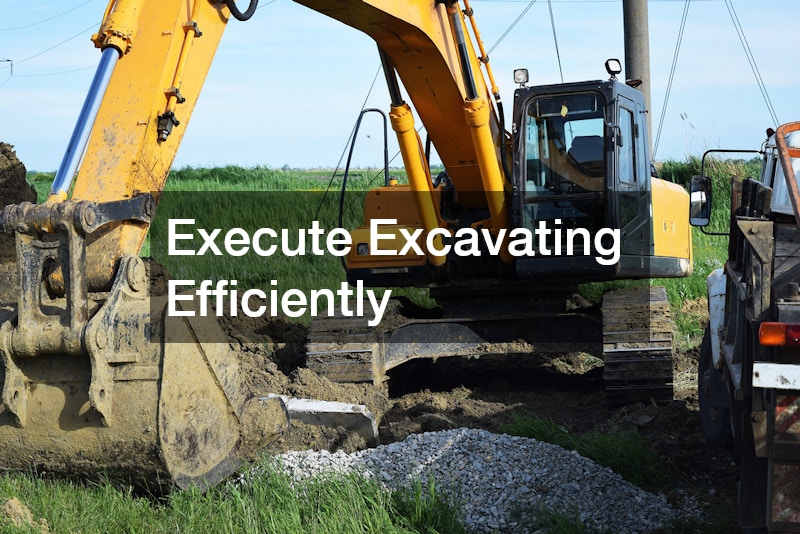

Building your first home is an exhilarating journey that combines your dreams, aspirations, and tangible resources into one significant venture. Whether you’re coming from a place of experience or diving into the process for the very first time, it’s essential to prepare adequately for this monumental task. In this article, we will discuss key subtopics that surround the homebuilding process, including the importance of securing land loans, selecting reliable roofing companies, understanding crane rentals, and ensuring proper concrete leveling services, among other tasks.
The road to building your first home is filled with critical decisions and logistical challenges. Starting with financial considerations such as land loans will set a solid foundation for your project. As you move forward, understanding the various contractors and services—like roofing companies, plumbing contractors, and even dumpster rental options—will help streamline the construction process and keep it on track.
Each step of the way will involve coordination with different services, including excavating professionals and crane rental companies, as well as more mundane requirements, like porta potty rental and waste management through dumpster rental. By breaking down the process into manageable parts, you can ensure that building your first home becomes an organized and rewarding achievement rather than a chaotic endeavor. With this guide, you’ll be equipped to tackle each subtopic relevant to constructing the home of your dreams.
1. Secure Land Loans

The process of building your first home begins long before the first brick is laid—it starts with securing a suitable piece of land. Land loans play a critical role in financing your property purchase. Different types of land loans exist, and understanding these options can help you make an informed decision that aligns with your financial situation and building timeline.
Moreover, consider that land loans often come with higher interest rates and may require larger down payments compared to traditional mortgage loans. It’s crucial to conduct thorough research and work alongside a financial advisor to ensure that you choose the best type of loan for your circumstances. This initial financial groundwork will significantly impact your ability to build your first home without unnecessary stress.
Once you’ve secured the land loan, you’ll also want to factor in other associated costs, such as land surveys, development fees, and the potential need for improvements on the land itself. By being proactive in securing your land loan and understanding your financial obligations, you set yourself up for a smoother experience as you progress through the building process. Remember, this is just the beginning, and the clearer your financial position, the easier building your first home will be.
2. Choose Reliable Roofing Companies
As your home begins to take shape, one of the critical aspects you’ll need to focus on is the roof—the protective layer of your sanctuary. Choosing reliable roofing companies is essential in this phase, as a well-built roof not only ensures safety but also affects the longevity of your home. Research potential candidates thoroughly, checking their past work, warranties, and customer reviews.
A skilled roofing company will guide you in selecting the right materials based on your geographical location, aesthetic preferences, and budget. Whether opting for shingles, metal roofing, or tiles, understanding the pros and cons of different materials can significantly influence the integrity and appearance of your home. Engaging with multiple contractors will give you insight into various options and competitive pricing.
Furthermore, ensure that any roofing company you consider holds the necessary licenses and insurance, as this protects you from liability in case of accidents during installation. Building your first home is a major investment, and the roof is one of the areas where you want to ensure long-lasting quality. Take the time to make this decision carefully, as it can save you from costly repairs down the line.
3. Evaluate Crane Rental Options
During the construction phase of building your first home, you might find that you need large machinery to assist in your efforts. Evaluating crane rental options can save you time and effort in lifting heavy materials or repositioning structures on your property. Rental services typically offer a variety of cranes that can cater to different types of projects.
When renting a crane, consider factors such as the weight capacity you will need, the height required for your project, and the rental duration. Additionally, working with a reputable crane rental company ensures that you have access to well-maintained equipment and professional operators if necessary. This consideration is especially crucial as improper handling could lead to significant setbacks or even accidents on-site.
Depending on your location, certain companies may provide additional services, such as delivery and setup, which can simplify your overall project. Incorporating crane rental into your plan is just another logistical step that can enhance the efficiency of building your first home. By being prepared and informed, you can seamlessly manage the use of heavy equipment in your construction journey.
4. Ensure Concrete Leveling Services

The foundation of your new home is perhaps one of the most vital aspects of the construction process. Ensuring concrete leveling services is essential for creating a sound and level base that supports the entire structure. Uneven concrete can lead to severe complications down the line, including structural damage, drainage issues, and problems with flooring.
It’s important to engage experienced professionals who specialize in concrete leveling when preparing the soil for your foundation. They will perform necessary assessments and conduct ground preparations, ensuring that the concrete is poured correctly. Furthermore, investing in quality service now can save you from costly repairs in the future, underscoring the importance of getting this part right as you work through building your first home.
Leveling should occur after excavation has been completed to create a flat surface where the concrete can be poured. Always seek reviews and recommendations to find a reliable service that understands local codes and ordinances related to construction. With a level foundation in place, the rest of the construction can proceed much more smoothly.
5. Arrange Porta Potty Rental
As construction begins, one often overlooked but essential aspect of building your first home is ensuring adequate sanitary facilities for workers. Arranging for porta potty rental can significantly enhance the efficiency and comfort of the crew on-site. This small logistical detail can boost morale and productivity, allowing workers to focus on their tasks without unnecessary interruptions.
When renting porta potties, consider the size of your crew and the duration of the project to determine how many units you will need. It’s also wise to select a reliable rental company, ensuring that the facilities are clean and well-maintained throughout the construction phase. Timely servicing of the units is another factor that you should verify with your rental provider to maintain hygiene standards on-site.
By addressing the comfort and convenience of your workers with appropriate restroom arrangements, you pave the way for a smoother construction process. Don’t underestimate the impact that basic amenities can have during the building of your first home experience—happy workers contribute to timely and focused labor on your project.
6. Coordinate Dumpster Rental
Construction inherently generates waste, and proper management of this refuse is an essential component of the process of building your first home. Coordinating with a dumpster rental service is key to keeping your site clean and organized, allowing for an efficient workflow. Having a designated space for refuse helps minimize clutter, ensuring that work can proceed without health and safety risks.
When selecting a dumpster rental service, think about the type of materials you will be disposing of, as certain companies may have specific regulations regarding hazardous or recyclable materials. A range of dumpster sizes is often available, so assess the scope of your project to choose the appropriate size that will meet your capacity needs without over or underestimating your waste.
Additionally, confirm the rental terms regarding pickup schedules and any associated costs for overages that arise due to extra waste. By maintaining a clean construction site through effective waste management, you can create a safer environment that fosters productivity as you carry forth with building your first home.
7. Select a Trusted Plumbing Company

An integral system of any home is its plumbing, and selecting a trusted plumbing company is vital to ensure flawless functionality once your home is completed. The plumbing will include installations for sinks, toilets, and showers, requiring experienced professionals who understand local codes and regulations. Engaging a licensed plumbing service ensures that your home will have consistent water pressure, drainage, and the necessary fittings for all appliances.
When considering plumbing companies, seek out references from friends or family who have had recent work completed. Taking the time to read online reviews can also provide useful insights into their level of service and reliability. Additionally, inquire about warranties on the work that the plumbing company will perform, as this can save you from future expenses if issues arise post-construction.
During the process of building your first home, communicate your plumbing requirements, including any unique requests for fixtures or water-saving technologies you wish to incorporate. The right plumbing company will work with you to ensure that the installations meet your needs and enhance the overall comfort of your home once it’s complete. Quality plumbing is not just about installation; it’s also about using the right materials and techniques to ensure longevity and efficiency.
8. Hire a Reliable Commercial Contractor
As you navigate through the building process, hiring a reliable commercial contractor becomes a central task that can make or break your home construction experience. A commercial contractor will manage various subcontractors, timelines, and budgets, acting as the linchpin for your project. This person should have a solid track record in residential construction to instill confidence that your build is in capable hands.
When interviewing potential candidates for the role of your contractor, be sure to discuss their experience in building homes similar to yours. Request references and check their portfolio to gauge their quality of work. This position is critical—your contractor will oversee all aspects of building your first home, ensuring that work meets standards and that timelines are adhered to.
Additionally, establish a solid communication plan with your contractor from the outset, as this will allow for smoother updates and adjustments throughout the building phase. The relationship you foster with your contractor will significantly affect the success of your build, making this choice one of the crucial components of your planning process. By selecting a great contractor, you enhance the probability of a successful construction journey.
9. Investigate Forklift Rental Services
Amid construction, you might need specific heavy lifting equipment. Investigating forklift rental services can be a wise choice that enhances efficiency on your job site. Forklifts are remarkably useful for moving materials around your construction site, especially as your building progresses and spaces become more congested.
When requesting forklift rentals, assess your project’s needs to determine the type and load capacity required. Also, consider whether you will need a trained operator provided by the rental company or if your team is already capable of safely operating the equipment. Safety is paramount in construction, and understanding how to handle forklifts responsibly can prevent both injuries and damage to materials.
As with other rental services mentioned, checking reviews and confirming rental terms is advisable before signing a contract. An organized approach to equipment needs is essential when building your first home, as it ensures that resources are effectively utilized and aligned with your project timeline. With the right machines at your disposal, you can avoid delays and work seamlessly throughout the construction phase.
10. Execute Excavating Efficiently

The excavation phase forms the groundwork of your home and is a crucial step in the process of building your first home. This essential task involves digging, grading, and preparing the ground to create a solid platform for your foundation. Executing excavation correctly sets the stage for everything that follows in your construction journey.
Conduct thorough assessments of your land and engage a professional excavating service to ensure that the site is adequately prepared. They will handle soil testing, drainage, and leveling, all of which are critical to the durability and stability of your new home. Furthermore, having experienced professionals manage this phase saves you time and reduces the likelihood of errors, which could otherwise lead to serious consequences.
Your excavation team should also be familiar with local regulations and permitting requirements to ensure compliance throughout the build. Building your first home demands attention to detail at every step, including excavation. By partnering with knowledgeable professionals, you ensure a strong foundation upon which to build the home of your dreams.
As you move beyond the preparatory phase and dive into construction, remember that careful planning and strategic engagement with professionals are key to the successful realization of your vision. Each aspect discussed—from securing land loans to the necessary rentals and hiring trusted services—plays an integral role in the broader context of building your first home. By taking each step seriously and making informed choices, you not only safeguard your investment but also create an enjoyable journey as you bring your dream home to life.
By considering the various elements discussed in this article, you arm yourself with the knowledge needed to successfully navigate the complexities of home construction. Focus on each aspect, from financial alignment to hiring the right professionals, ensuring that your experience is not solely about building your first home but about crafting a joyful new beginning for you and your family. Ultimately, a well-prepared approach will lay the groundwork for your success and satisfaction once you step into your finished home.